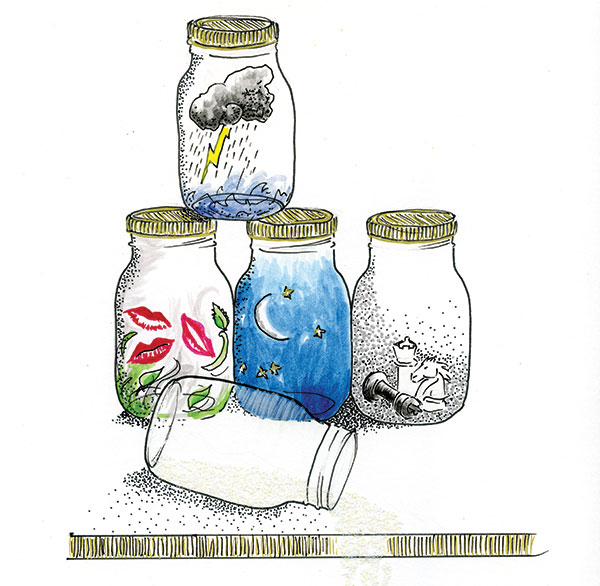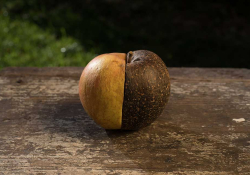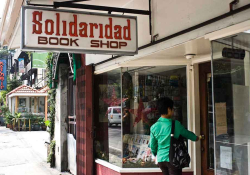Green Memory Stewed in Sugar
Enjoy this recipe from the Zsolt Láng cookbook and look forward to two more in WLT’s September issue.

Prod the freshly picked memory meticulously with a fork, leave in cold water for four weeks, changing the water every day. Steep the memory thus prepared into boiling water, simmer for three minutes, then strain. If the memory is too early, simmer longer, but be careful not to overcook because it can easily break down and liquefy. In case that happens, do not throw it out: it can be made into an excellent syrup.
Place the strained memory, left to drip and cool, into a jar and pour cold sugar syrup over. As an alternative, you may start with the sugar syrup and when it is brought to a simmer, steep in the memory carefully. In this case you’ll need to cool it immediately; otherwise its consistency can easily turn unpleasantly slimy.
It is impossible to say what memories are worth making into preserves. Everyone has their preformed preferences: a sweet little picnic on the hillside, a Roman holiday, traveling to India, a chess game in the gazebo, a hot declaration on a summer night, or, on the contrary, a vile changing of one’s tune—although it is certainly a rare man who makes preserves out of the memory of his dejection. I’d like to insert two personal experiences here. The first I heard from someone who was reputedly a passionate collector of memories, so understandably given to adventurousness. This collector spent a wonderful week with a wonderful person, believing that nothing could be more beautiful on earth, but while he was scrupulously peeling the memory for preserving, it turned out to be mere hypocrisy, so in the end he threw it away. The other experience is the very opposite: the memory of running through the park soaked to the skin, once canned, shed its beams of light on the rememberer’s wintring life.
Before putting the lid on the can (or covering it with cellophane), remove the foam produced. Water-bath canning is paramount; under no circumstances should the water bath be brought to a boil again. When the preserve cools down sufficiently, put it on the pantry shelf, preferably keeping a cool and dry attitude—that is, refraining from opening and devouring it right away. Check regularly over the first few weeks, for the first signs of going moldy or seedy or slimy already show at this early stage. If anything of the sort is spotted, you can still intervene by renewed water-bath canning, or by adding to the ingredients, although in most cases these processes cannot be stopped. As Brillat-Savarin phrased it, conserving depends on the material’s capacity of time intake (admettation du temps). Besides, apparently subjective factors play at least as important a role.
Finally, a third personal experience: I have never yet come across a truly flavored memory preserve. I don’t wish to go into the causes here. It is probably a question of one’s view upon life. Preserves are reminiscent of death, whereas the unprocessed, raw memory is like a germinating wheat grain. There we have a beautiful, smart, and generous person, then desire is desiccated and nurturing love oozes out of him, and all of a sudden he becomes ugly, superficial, and remarkably stupid.
Translation from the Hungarian
By Erika Mihálycsa















